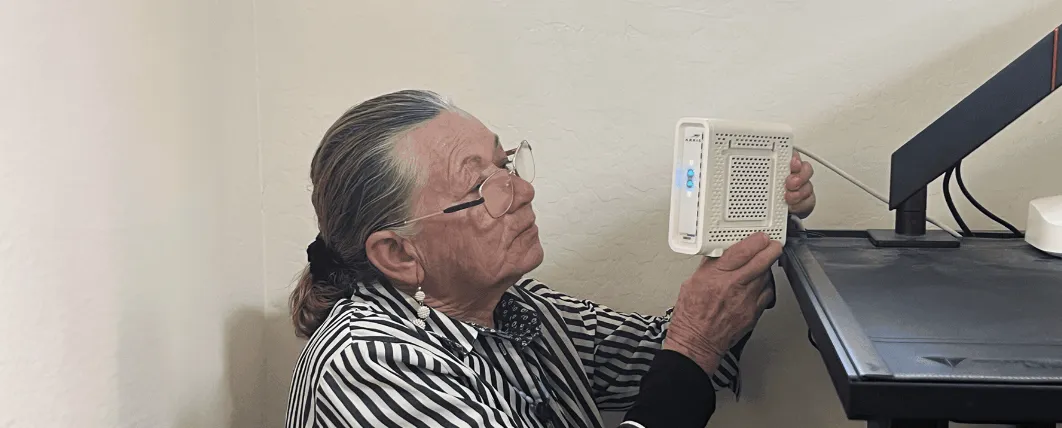Understanding the Importance of Connectivity
For seniors, having reliable access to cable and internet can significantly enhance their quality of life. Whether it’s streaming their favorite shows, staying in touch with loved ones via video calls, or accessing important information and services online, connectivity plays a vital role. Furthermore, many seniors rely on online platforms for telehealth services, making internet access even more critical.
1. Assess Your Needs
Before diving into the search for affordable cable and internet, it’s essential to assess your specific needs. Consider how much internet speed you require based on your online activities. For example, if you primarily use the internet for browsing and emailing, you may not need a high-speed plan. Conversely, if you enjoy streaming videos or participating in video calls, you’ll need a plan that offers higher bandwidth.
Understanding your viewing habits can also help you choose the right cable package. Do you prefer basic channels, or do you enjoy a wider selection of programming? Evaluating these factors will allow you to narrow down your options effectively.
2. Research Senior Discounts
Many cable and internet providers offer special discounts and packages tailored for seniors. These discounts can significantly reduce monthly bills. Be sure to inquire about any senior-specific promotions when contacting providers. Some well-known companies, like AT&T, Spectrum, and Comcast, offer special pricing for seniors, making it easier to access affordable services.
3. Explore Bundling Options
Bundling services can often lead to substantial savings. Many providers offer package deals that combine cable, internet, and sometimes even phone services at a lower overall cost than purchasing each service separately. Bundling can simplify billing and make it easier to manage your expenses. Just be sure to read the fine print to understand any additional fees or contract terms.
4. Compare Different Providers
Shopping around is crucial when searching for affordable cable and internet. Take the time to compare plans and prices from multiple providers in your area. Websites like BroadbandNow or Allconnect can help you compare different services based on your location, allowing you to find the best deals available. Consider the following factors when comparing providers:
- Monthly Costs: Look at the base price and any additional fees, such as installation or equipment rental.
- Contract Length: Some providers may require long-term contracts, while others offer month-to-month plans.
- Internet Speeds: Ensure that the speed offered meets your needs for streaming, browsing, or gaming.
- Customer Reviews: Check online reviews to gauge customer satisfaction and reliability.
5. Utilize Government Programs
There are several government initiatives aimed at helping seniors access affordable internet and cable services. The Federal Communications Commission (FCC) offers the Lifeline program, which provides eligible low-income individuals with discounts on phone and internet services. Seniors can benefit from this program by applying through their service provider or through the FCC’s website.
Additionally, the Affordable Connectivity Program (ACP) helps eligible households pay for internet service, offering a monthly discount on broadband service. Seniors should check their eligibility for these programs, as they can significantly reduce costs.
6. Consider Streaming Services
For seniors who primarily watch television, exploring streaming services can be a cost-effective alternative to traditional cable. Services like Netflix, Hulu, and Amazon Prime Video offer a wide variety of programming at a fraction of the cost of cable subscriptions. Many streaming platforms provide free trials, allowing seniors to explore content before committing to a subscription.
Moreover, some streaming devices, like Roku or Amazon Fire Stick, can provide access to channels and services that might otherwise require a cable subscription. These devices are often user-friendly and can enhance the viewing experience.
7. Ask About Promotions and Special Offers
Cable and internet providers frequently run promotions to attract new customers. These deals may include reduced rates for the first year, free installation, or complimentary equipment. When contacting providers, don’t hesitate to ask about any current promotions that could lower your costs.
8. Negotiate Your Bill
If you’re already a customer but find your bill has increased, consider calling your provider to negotiate a better rate. Many companies have retention departments that are willing to offer discounts to keep customers from switching to competitors. Explain your situation and inquire about available promotions or lower-cost plans that may better suit your budget.
9. Seek Help from Family or Friends
If navigating the world of cable and internet feels overwhelming, don’t hesitate to ask family members or friends for assistance. They can help you research options, compare plans, and even assist with setting up services. Sometimes, having someone knowledgeable by your side can make the process less daunting.
Conclusion
Accessing affordable cable and internet services is essential for seniors who want to stay connected and engaged with their loved ones and the world. By assessing individual needs, exploring discounts, comparing providers, and utilizing government programs, seniors can find budget-friendly options that fit their lifestyles. With the right approach, enjoying the benefits of connectivity can be achievable without breaking the bank.









